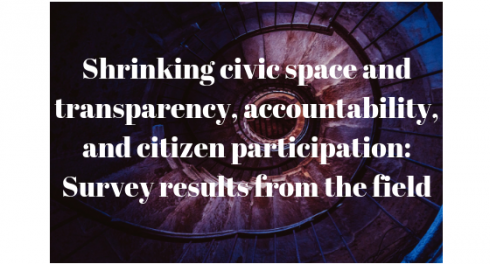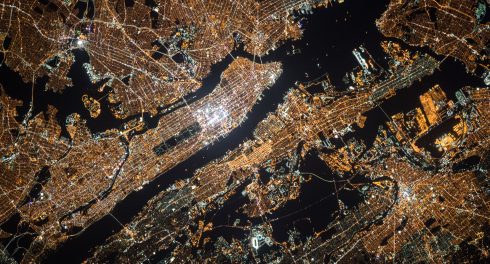By Edith Mecha
In promulgating this blog; while wide-ranging links, authorships, and contacts may form part of the views expressed therein, core reference has been given to TAI’s compendium of resources on closing civic space.

Image by Gerd Altmann from Pixabay
While working with Persons with Disabilities (PWDs) in Kenya, I observed that they often work under dire conditions and have limited access to range of services. It was not that those with disabilities did not want to actively participate in the society – quite the opposite. It was that they face significant barriers to doing so. I observed PWDs experiencing lack of access to education institutions, workplaces, and public spaces with negative implications on their personal, family, social, and economic aspects. While government buildings, service buildings, and transportation systems are to be accessible, there does not seem to be a clear-cut plan to guaranteeing that accessibility.
The Constitution of Kenya 2010 in Article 54 states that persons with disabilities are entitled to be treated with dignity and respect, and not to be referred to in a manner that’s demeaning, to access educational institutions and facilities for persons with disabilities, to reasonable access to all places, public transport and information, to use sign language, Braille or other appropriate means of communication, and to access materials and devices to overcome constraints arising from the person’s disability. This implies that while the constitution’s letter and spirit provided for these persons in equal measure with other citizens, there has been failure to follow through with it. PWDs are excluded in conversations on policies and actions that affect them and in broader national dialogue. This compromises their ability to be empowered to run their organizations and deal with matters that concern them without interference.
Further challenges hindering the cause of full participation relates to data and allocation of public resources. Data about the number of PWDs, type of disability, ages, gender, and geographical locations is hard to get. Where it does exist, it is often incomplete or of variable quality. This makes it harder to advocate. Accurate numbers can better justify budget allocations to provide the necessary services from national to local government.
I have come to appreciate these aspects all the more during my experience as an Atlas Corps Fellow serving at Transparency and Accountability Initiative (TAI). Through my work for TAI with its global perspective, I’ve come to see that these issues of rights and access and how they intertwine with public resource decision making are at play all around the globe. There is much learning that can be better leveraged across communities of activists, especially between those whose starting point is a specific rights-based agenda and those who are promoting transparency, participation, and accountability across the board.
One challenge for both communities is the trend toward government repression and constraints upon civic activism. I was struck by the widespread impacts of this shrinking space phenomenon reported by TAI member grantees, including limitations on freedom of expression (including self-censorship) and freedom of association (including access to international funding). Research by other groups, such as the Funders Initiative for Civic Space, shows that these concerns are felt just as much, if not more, by those groups championing human rights.
Through the linkages of TAI, I have come to learn of international platforms that might be one channel to push for defending public rights for participation and civic engagement. Open Government Partnership (OGP) is perhaps the most relevant for the Kenya context. Kenya is a member of the OGP and public participation is one of the six themes featured in its commitments under the Kenya 2018-2020 National Action Plan along with beneficial ownership, open contracting, open geo-spatial data for development, improve public sector performance through governance indices, and building open government resiliency.
The world of OGP is a world that can benefit PWDs. I can see ways to make the push for better data gathering and publication in service of the PWD community – harnessing insights from a decade plus of open data efforts for the public good. I can see ways to promote more inclusive citizen participation around revenue and budgeting decisions, and to enable feedback from those who may otherwise all too easily fall under the radar of politicians and bureaucrats alike. More specifically, PWDs could benefit from open contracting that could provide entry points for business owned by and serving PWD.
However, even with the chance to learn from the rest of the open government community, those living with disabilities will still need to fight for their rights, to have a space to advocate. Too often CSOs who cross paths with the government are accused of inciting the public against government policies when they conduct civic education and sensitize the public about their rights, like the right to vote, equal provision of services, and equitable budgetary allocation for the PWDs.
I would advise improving awareness both to the public and legislatures so that they could come up with tailor-made policies for PWDs. I shall advocate for PWDs being included in conversations on policies and actions that affect them in broader national dialogue. I believe PWDs should receive the national prominence they deserve in the president’s Big Four Agenda in order to reach full potential.
Finally, I would vouch for equitable representation in the County Assembly. Drawing on the experience of multi-stakeholder initiatives, I would also propose providing a platform for all stakeholders concerned with matters of disability to interact regularly with the intent to mutually find solutions to the problem, centralize and avail relevant data, and improve their welfare. The net result should be to respect and increase their civic space.


